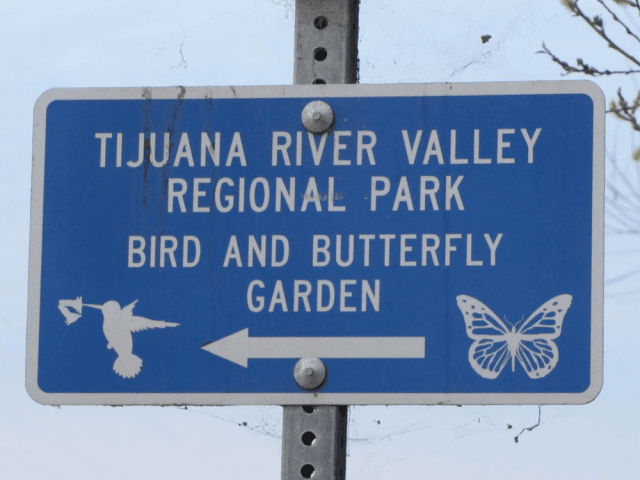U.S. Border Patrol agents are expressing frustration that a multi-million dollar park project in San Diego’s Tijuana River Valley region, including a butterfly garden, will make it harder for them to patrol the U.S.-Mexico border in that area.
Among the obstacles of concern are snowflake barriers, rebar-lined irrigation systems, low-posted bollards and iron gates.
The project is shaped in accordance with an environmental impact report from 2006. Much has changed since then, according to National Border Patrol Council Local 1613 spokesman Gabe Pacheco.
“These obstacles are going to make securing the border more difficult and more dangerous,” Pacheco said. “Agents are going to get injured and illegal aliens coming through the area already have.”
Pacheco told Breitbart News that between the snowflake barriers and iron gates, agents in pursuit of suspects could easily become injured, particularly in dark or foggy conditions when visibility is impaired.
In addition, some of the areas blocked off with gates or fencing are already hindering agents from continuing pursuits in vehicles. Blocked areas can facilitate suspects traveling on foot or bicycle to evade capture if they surmount the obstacles.
Agents must take a significant detour to come around the other side of the area behind the gates in attempts to capture suspects, according to Pacheco, who is also an active duty agent. With miles of brush, local residences and farms, there are many places for illegal aliens to evade authorities and find their way into the local community.
One concern is that individuals with criminal records are known to cross the border and could pose a danger to those using the park’s open space, gated areas and trails, since agents are hindered from entering these areas in their vehicles.
The environmental impact report noted Border Patrol and border protection activities under an “Areas of Controversy” section of the plan: “An additional area of controversy relates to the ongoing activities of the enforcement officers of the CBP within the Regional Park and their suggestion that a loss of access to existing dirt roads would adversely affect their operational effectiveness.
“The Proposed Project is intended to create, enhance and restore natural habitats within TRVRP [Tijuana River Valley Regional Park] while optimizing the recreational use of the site and accommodating ongoing border protection activities. Potentially Occurring within the Project Area,” the report states.
Under the current plan for the area, 40.9 miles of existing trails are slated to be closed and restored.
The environmental report also notes that tadpoles of the Western spadefoot toad variety were found in the water-filled depression of a border patrol road. It adds that “CBP patrols regularly drive and walk most of these roads and trails in the course of their duties within and outside of the TRVRP.”
Pacheco told Breitbart News, “Over time Border Patrol has cleaned up tires and removed dead bodies from the Tijuana River basin and contributed to the improved beauty of the area.”
County of San Diego spokesman Mike Workman disagreed.
“There’s nothing put up to block anyone. We’ve used the bollards to delineate the trail from the roadway, pedestrian traffic on one side, and vehicles on the other,” he said. “The Border Patrol has a key to the gate. We’ve been working with the Border Patrol all along.”
“We’ve been at the table and willing to be at the table with Border Patrol and we want to work with them and accommodate what standards they might have, balanced with the safety of the public.
“We are working to do what we can to keep the public safe and accommodate Border Patrol. Today, February 24, we met with Border Patrol officials to try and address concerns brought to the attention of Border Patrol and San Diego County,” said Workman.
A local Border Patrol office was also contacted, but has not provided comment at this time.
Follow Michelle Moons on Twitter @MichelleDiana

COMMENTS
Please let us know if you're having issues with commenting.